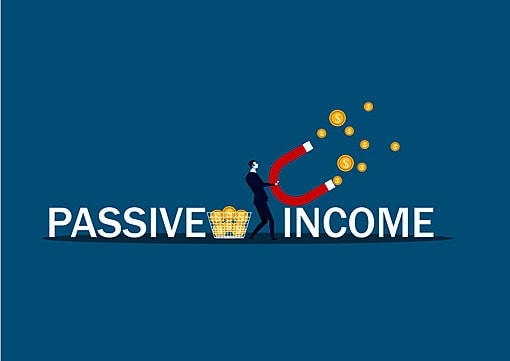
Creating a passive income is important for a number of reasons. It can provide financial stability and security, allow for more flexibility and freedom in one's personal and professional life, and even serve as a means for achieving financial independence.
Passive income is defined as income that is earned without the need for active participation or effort. This can include things like rental income from real estate properties, dividends from stocks or mutual funds, and income from businesses that are fully or partially automated. Passive income streams can be established through a variety of methods, including investing in assets that generate regular income, starting a business that generates passive income, or purchasing an existing passive income-generating business.
One of the primary benefits of creating a passive income is financial stability and security. A steady stream of passive income can help to cover living expenses and reduce the need to rely on a single source of income, such as a salary from a job. This can provide a sense of financial security and peace of mind, especially in times of economic uncertainty or during periods of job loss or other financial setbacks.
Another important benefit of creating a passive income is the flexibility and freedom it can provide. With a passive income stream, individuals are not tied to a particular job or location and have the ability to pursue other interests or opportunities as they arise. This can be especially appealing for those who want to travel, spend more time with family, or simply have more control over their schedules.
In addition to providing stability and flexibility, creating a passive income can also be a means for achieving financial independence. Financial independence means having enough passive income to cover one's living expenses without the need for active employment. This can allow individuals to retire early or simply have the freedom to make choices about their career and lifestyle without the constraints of financial necessity.
There are several ways to create a passive income, and the approach that works best will depend on an individual's goals, skills, and resources. Some options include:
- Investing in dividend-paying stocks or mutual funds: These types of investments can generate regular income through dividends, which are payments made by a company to its shareholders. Dividend-paying stocks can be a good option for those looking for a relatively stable source of passive income.
- Renting out real estate: Owning rental properties can generate passive income through rental payments made by tenants. This approach requires a significant upfront investment and can involve a significant amount of work, but it can also be a lucrative way to generate passive income over the long term.
- Starting a business that generates passive income: There are many types of businesses that can generate passive income, including e-commerce businesses, affiliate marketing, and content-based websites. These types of businesses can be run with minimal time and effort, allowing the owner to focus on other pursuits.
- Purchasing an existing passive income-generating business: Another option for those looking to create passive income is to purchase an existing business that generates passive income. This can be a more straightforward approach than starting a business from scratch, but it also requires a significant upfront investment.
Creating a passive income can provide numerous benefits, including financial stability and security, flexibility and freedom, and the potential for financial independence. While it may take some time and effort to establish a passive income stream, the long-term rewards can be well worth it.
More Like This

Search Engine Optimisation (SEO)
What is SEO?
A general summary of what SEO is and what it can do for you.
A general summary of what SEO is and what it can do for you.
Auto Blogging On Steroids
One of our users explains how RSSMasher Technology can be used to automate content marketing and backlinking.
Chapter 1: Why This Playbook was Created
Creating this was a labour of love and I hope it helps you to grow your business in the same way I've been able to help so many of my clients.
Chapter 2: What Entrepreneurs Should Spend Their Money On
There are so many options out there when it comes to marketing your business online. What the most effective ways.
Chapter 3: Your Website and What it Should Do
The most important thing you can do when marketing your business on the Internet is creating a "home base" where people can learn about you and what you do.
Chapter 4: Your Facebook Page and Why it's Important
Over the last few years, Facebook has taken steps that have made it harder for businesses to get their Facebook page's content to show up in the news feed.
Chapter 5: Using a "Newsletter" to Get More Business
One of the easiest ways to make more money in your business is to get your existing customers to come back more often and buy more services/products from you.
Chapter 6: How to Drive New Business with Facebook Ads
Powerful and cost effective ways to drive new customers is to use Facebook Ads. A great offer in front of a group of people that are likely to want it.
Chapter 7: What is a Messenger Bot (and why you need one)
Messenger Bots are a relatively new technique in the Digital Marketing world, but one that we've had a ton of success with when implementing them for our clients.
Chapter 8: Showing up in Google Ahead of Your Competitors
The way to dominate your market is to make sure that your website shows up first when potential customers search for certain keywords in your market.
WAYNE ATKINSON | SOFTWARE DEVELOPMENT
INTERNET MARKETING | LIVE YOUR DREAM..
WAYNE ATKINSON
Copyright 2019. Safe Online Marketing Ltd











